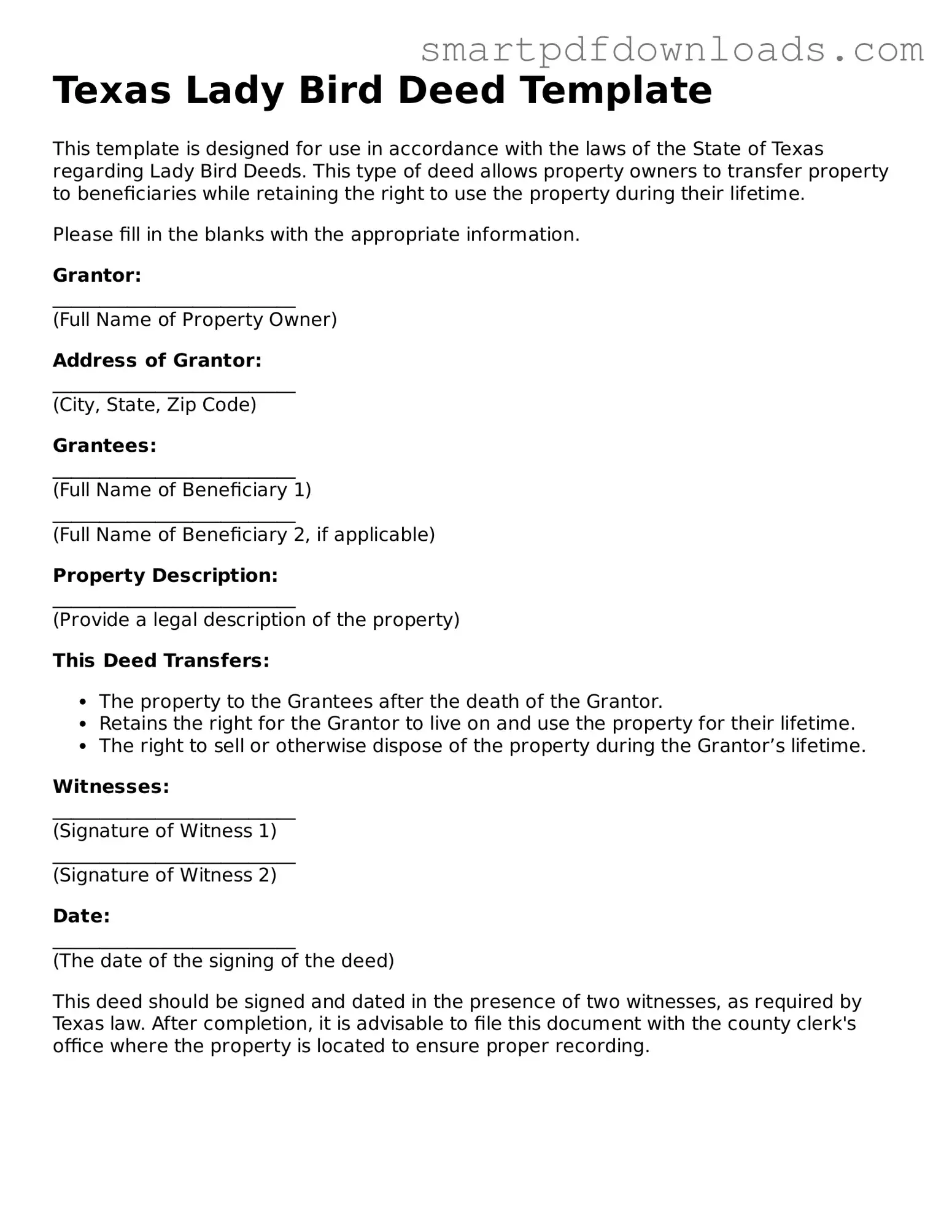Legal Lady Bird Deed Form for the State of Texas
The Texas Lady Bird Deed is a unique legal document that allows property owners to transfer their real estate to beneficiaries while retaining control over the property during their lifetime. This deed simplifies the transfer process, avoiding probate and ensuring that the property passes directly to the intended heirs upon the owner's passing. Understanding this form can provide peace of mind for property owners and their families, making estate planning more straightforward and efficient.
Edit Lady Bird Deed Online

Legal Lady Bird Deed Form for the State of Texas
Edit Lady Bird Deed Online

Edit Lady Bird Deed Online
or
⇓ PDF File
Finish the form and move on
Edit Lady Bird Deed online fast, without printing.